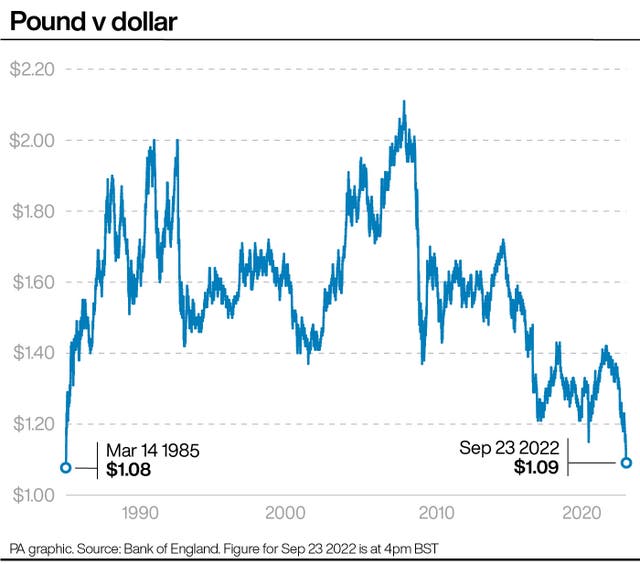
Nick Abbot 10pm - 1am
23 September 2022, 18:14

Sterling hit its lowest for 37 years on Friday after the Chancellor’s mini-budget.
The pound had its worst day since the early days of the pandemic on Friday after the Chancellor announced his mini-budget.
It fell by more than 3%, yet again dropping to the lowest value against the US dollar for 37 years.
It adds to a months-long fall in the value of the pound. Over the last month, it has dropped by 7% – and the value of sterling is more than a fifth lower than it was a year ago.

It will mean higher prices for Britons over the coming months and years.
Samuel Tombs, an expert at Pantheon Economics, on Thursday said that inflation will likely increase by around 0.5 percentage points in 2024 because of recent falls in the pound.
This means that every £1,000 that a family spends will be worth £5 less simply because of the drop in sterling, and will leave the average household around £150 worse off every year.
It also adds to runaway inflation, currently at nearly 10% thanks to the massive rise in energy bills facing households and businesses across the UK and Europe.
Energy bills are one of the things that are likely to increase as the pound falls – the price of all of the gas that the UK uses is based on the dollar – even if the gas is produced in the UK.
Foreign holidays are also likely to be more expensive, especially when visiting the US and other countries whose currencies the pound has dropped against.
Fortunately the euro is also weak at the moment, so holidays in Europe are unlikely to increase much in price because of currency changes.
There are also benefits to a lower valued pound. It will now be cheaper for tourists to come to the UK, for example.
It will also likely make British companies more competitive when they export around the world. A cheaper pound means that it is cheaper for people around the world to buy British goods and services.